Exclusive Interview: Doron Kempel On Why SimpliVity Already Disrupts Dell-EMC, His IPO Plans And The Company's Phenomenal Growth
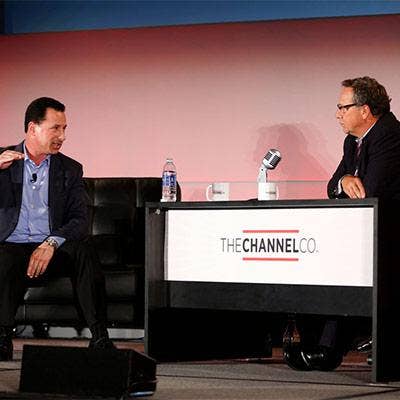
Kempel Takes Center Stage
SimpliVity CEO Doron Kempel took the stage at the Best of Breed Conference in Orlando, Fla. Monday to field questions on a wide range of topics, starting first and foremost with the impact he expects to see from Dell's blockbuster $67 billion acquisition of EMC, unveiled earlier in the day.
In front of an audience of some of the industry's top-tier solution providers, Kempel also took on questions from The Channel Company CEO Robert Faletra about plans for an IPO, SimpliVity's channel-only sales strategy, its partnership with Cisco and Kempel's own past as part of an elite special forces unit in Israel. Here are edited excerpts of the conversation.

Simplivity seems to focus on EMC as the No. 1 competitor. VMware is one of your closest partners. Does this Dell deal complicate things?
So what we have here is a company with legacy products in part of its portfolio – that's Dell – merging with another company that completes its legacy portfolio, so what they have now is a legacy portfolio that we disrupt. That particular legacy portfolio makes very little change to the end user who still gets the same product. The fact that Dell is now with EMC doesn't allow them to develop a competing product for Simplivity, or Nutanix or VMware faster – it's the same people.
The Dell and EMC merger is not a strategic surprise, maybe a tactical surprise. What happens in mature industries is that the differentiating value of the product declines then companies merge. Markets consolidate when there's no differentiating power. Is there much differentiating power in the servers? If there had been IBM would not have sold their server business. I think that the blade servers are eventually going to be disrupted by rack mount servers that are using software such as SimpliVity.
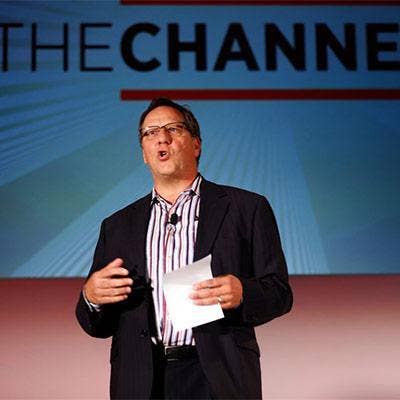
How is this deal impacting the market?
This creates a little bit of a confusion. These companies are going to be very busy integrating these very large businesses. This is a massive task and these companies typically when they get into this integration mode, there's less innovation, there's distraction. We are going to tell VARs, 'This is a great opportunity for you to start working with SimpliVity.'

Where does this deal make sense?
This deal makes a lot of sense for their investors. I'm sure the people that decided to broker this particular deal – Silver Lake and the Michael Dell family -- have looked at all the numbers and they're going to be just fine. Now the question is what does that mean to the end users? Not much. They're going to negotiate with one large vendor as opposed to many. What does it mean for the VARs? The VARs are going to be asking themselves how many of these products from their portfolio are going to be disappearing in the next few years.
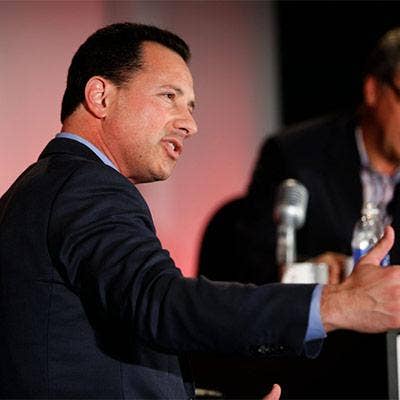
SimpliVity last time I checked was the fastest growing company in Massachusetts. Can you give us an idea of the size and scope of the company – is it still growing fast?
We founded the company September 2009, spent 43 months developing version 1.0 and we started selling the product in April 2013, so we've been selling for ten quarters. According to Morgan Stanley, we're growing three to four times faster than the following companies that you all know and have probably sold – Data Domain, EqualLogic, Nimble, 3 Par.
The company is growing very fast. We have 650 people around the world approximately 350-400 in Massachusetts. We're adding about 10 people per week. Business is growing very fast.
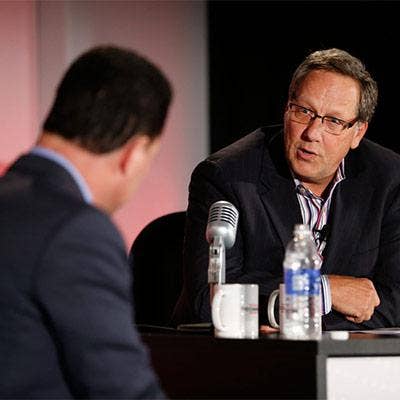
Can you talk about the size of revenue at this point for SimpiVity?
The largest deal we closed in September with a service provider in Europe that bought 198 systems. Cisco is one of our partners, the customer bought 198 Cisco servers all of them UCS rackmount on top of which our software is going to run. So the business and deals are becoming much larger.
Fifty-three percent of our sales come from outside the United States – typically it takes a company about 10 years when to get to that level of balance. We are already there after about 10 quarters of selling.
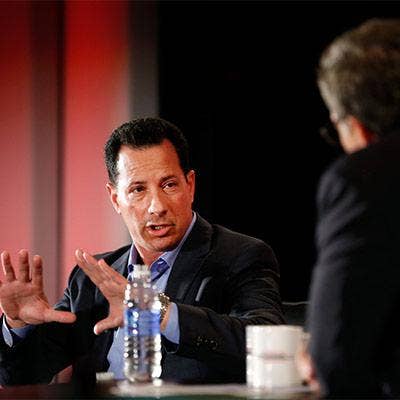
Where do I make money with you as a VAR?
What our VARs have been very successful doing has been breaking into accounts where they couldn't break into with the legacy products because at the end of the day, everybody carries a legacy product. Today we win four in every five qualified opportunities. If you're a VAR and learn how to sell our product, we will help you and work with you early on and this is an opportunity for you to win share.
If you're a VAR like Dimension Data that needs to double the data center revenue until 2018, this is a great opportunity to win share because you're not going to grow that fast just by growing your base in certain accounts.
You also want this technology to be a defensive because somebody is probably knocking on the door of your customers and telling them about hyper-converged. So its defensive and offensive and you make money cause you make very high margins and you're creating a lot of value and you're selling x86 servers with our software.
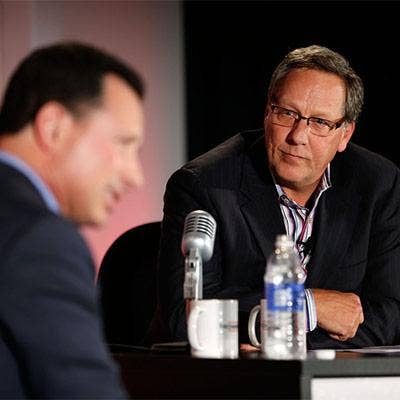
SimpliVity went all channel right away. Has that been successful for you and why did you do it?
It's been extremely successful and been part of our strategy from day one. In designing the product for SimpliVity some of the parameters were, 'how do we make the channel successful with this product,' 'how much patience will the normal VAR or solution provider have for us,' 'how easy should it be to sell. What should the margin we should offer them.' Basically the product, our go to market was designed for channel partners – for example, we don't to an OEM deal.
The VARs today our partners are selling this whole stack and they get typically smaller margin from each one of the vendors they represent. We had to come up with a product that on one hand offers a 3x TCO advantage to the end user, but given that we turn more margin to the channel, the channel ends up making as much dollars as they would have selling the large stack.
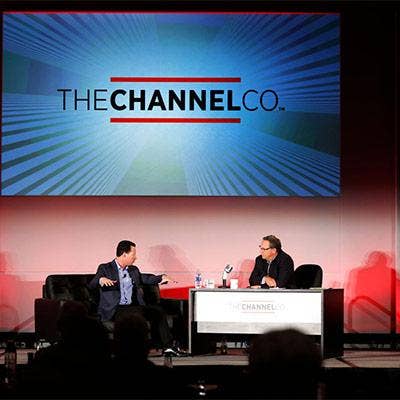
What does a typical solution provider/VAR partner look like, the typical player you're working with today?
There's been an evolution of that. When we started, we started with very small partners … We went to small mom and pop, $50 million, $100 million VARs. Where we are today is we have partners that are Cisco partners. So once we entered into the relationship with Cisco, suddenly we have partners like FusionStorm, DataLink. Go to Europe, we have companies like ComputaCenter, that's a $6 billion per year VAR …so we have very large partners, and I dare say we are doing one-off deals with even larger players and it's just getting better. Some of our partners include the WiPRO's of the world. We've just done a large banking deal in India, of all places, where there is privatization of the banking industry. So Cisco and WiPro and Simplivity Oct 1 took live a bank, this is a completely new bank. So the number and characteristics of the partners also changes. When i go back to your question about whether I'm surprised by the pace, I'm surprised by the pace of the size and weight of the VARs and system integrators that [we're] working with.
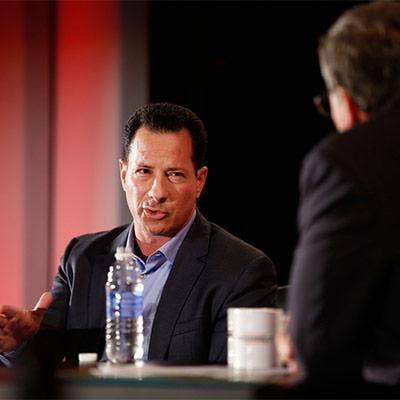
You're really talking about bringing silos together and if you're in the enterprise, silos don't always agree what should be taken out of the stack. If I'm a partner, what's my pitch to go to market with this?
If you walk into very large accounts, you should not yet tell them that you're going to replace all of their IT because they don't want to do that. You need to speak with the CIO. You don't want to address the storage people, because basically what we do is we say there's no more storage management, there's management of VMs. In those very large environments you probably want to go to someone responsible for remote offices because remote offices is a great use case for our technology because all the data is decompressed and optimized and the systems are comprised and very easy to manage numerous sites at the same time.
You want to talk about remote offices, or development test or virtual desktop infrastructure this is less threatening to them. And once you got them they'll probably figure out they can move more workload onto those systems, that's the point of entering into the very large enterprise. The pitch to those customers is we're going to reduce your total cost of ownership by 3x, 67% reduction in TCO and a lot of it has to do with operating expenses but a lot of it also has to do with CapEx. In a remote office you need a server, storage, backup, Riverbed instead of those 4 you just buy one or two of our appliances.
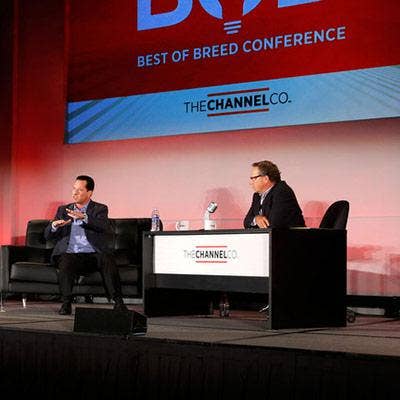
What about the midmarket?
If you go to the midmarket you speak with the director of IT – they're responsible for the whole IT staff. You tell them, 'I'm going to reduce your TCO'. If they're small, they don't have the budget or functionality as part of the legacy stack and to those particular customers you can show them how with the budget they have they can have the functionality of large enterprises. Basically the pitch is the best of both worlds. The economics are very compelling you're running like a cloud, you're buying x86 commodity resources with our software, but you get enterprise capabilities in terms of performance, resilience, protection, global unified management.
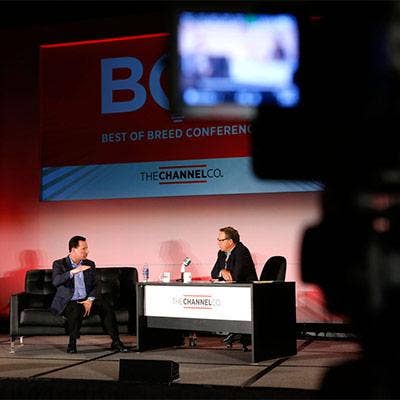
Are you going to get bought out? Will you go public at some point?
As a CEO you can never say," I'm not going to sell the company." It's not my company, I just manage and lead it. But I will tell you a bit about our investors: Our investors include Kleiner Perkins,they're an investor in Google. They include Accel, they're an investor in Facebook. We have an investor who's one of our customers, a very large money management firm out of Geneva ... They invested $150 million in SimpliVity, sending our valuation in April to over $1 billion and setting a record in that SimpliVity, according to Morgan Stanley, is the fastest company to get to $1 billion valuation in the IT infrastructure space from time it started shipping product. We're so excited; do I look like someone that wants to go to a barbecue during the week? We want to grow this as fast as we can ... We will IPO at some point in time, but an IPO to us is just pit stop, just a way to raise more capital ... and create some liquidity for very deserving team members.
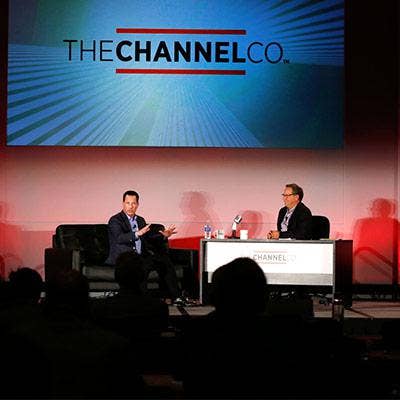
Would it be appropriate for me to say you're more interested in building a great company than you are in selling, doing an exit plan and getting out of Dodge?
I work for the investors and shareholders, the shareholders are our team members, and we think there is a remarkable opportunity here that comes once every 10 years statistically. I want to stay modest and not say we're going to be like this company or that company, but we think this is going to be a very interesting ride … The team is very energized.
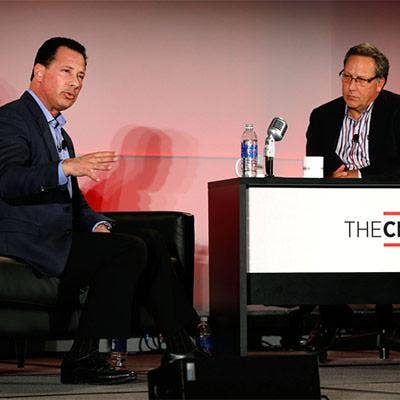
You've got deals with Cisco and Lenovo. Are you hardware agnostic?
We're hardware agnostic, public cloud agnostic, we allow people to move data to Amazon today, we're hypervisor agnostic – today we run on VMware, we're in the process of developing hyper-V capability and KVM. Eventually the VARs can choose which server, which hypervisor, which use case.
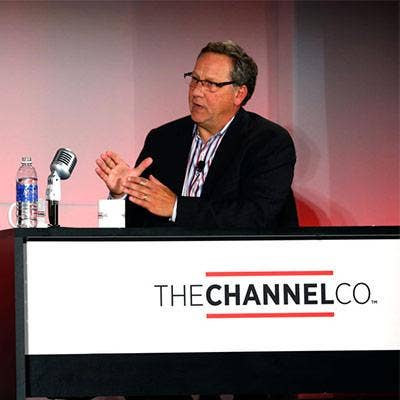
Are you a sales - driven, hardware - driven or engineering -driven company?
We're results driven. Our strategy was that in IT the venture capitalist don't give the entrepreneurs more than 2 years to develop their product. That means it sets an artificial barrier in terms of how much technology you can deliver because at the end of the day there's certain foundation technologies that if they're not part of version 1.0 you cannot offer it after the fact. Our assumption is if we deviate from that particular model, we deliver the whole foundation that we thought was necessary to deliver the whole stack there's aren't going to be competitors, and thus far there are no competitors to the whole slew, the whole compliment of technology that we offer. VCE was very impressive for awhile, Nutanix is doing a great job meaning VDI, single site clusters, but where we play and where we will be gradually playing we don't think that there are a formable competitor … technology is at the heart of what we do.
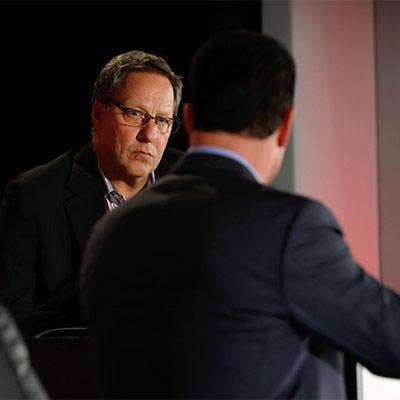
So, you're really an engineering company that has a sales focus.
I don't know what to call it. I'd like to think about us as great partners to our partners, and we invest a lot in engineering right now.
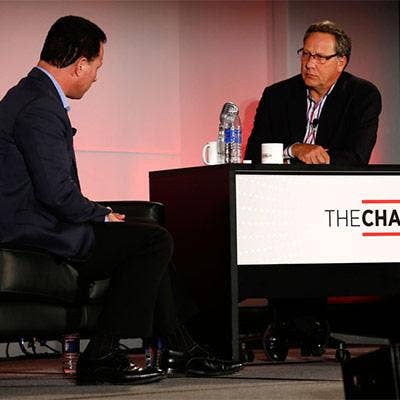
Who's driving most of your demand right now?
The partners are delivering 60 percent of our leads today. ... We will have 800 partners from around the world. Sixty percent of the leads come from our partners; they come sometimes in the form of joint events … and we want to increase that. We have great spiff programs with the partners, and other programs.
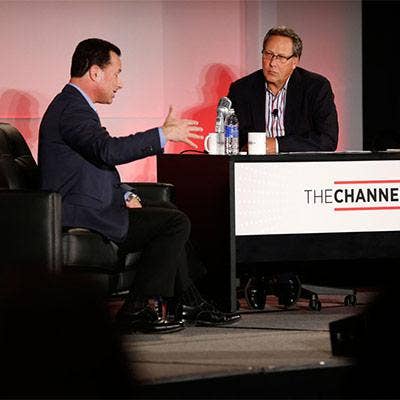
Are you actively looking for more partners at this point?
We're becoming a little bit more picky because we want to make sure we don't saturate the market, but we're always looking for great partners … globally.
That puts you less than 400 partners here in the US?
That's correct.

What do you think the right number is? Or do you see a right number?
We're not looking for partners, we're looking for specific partners. If you look at the market, we basically decided to do something that is very risky strategically, and that is to stay with a technology for 43 months, understanding that someone is going to launch before we do. So it's a very difficult decision to give the first mover advantage to someone else.
We did that because is we were cduring those two years of advantage we basically gave Nutanix, they're not going to get some scarce strategic real estate. They're not going to grab something that is scarce. The scarce assets are the partners. So we're very interested in a collection of partners that we view as strategy that we need to get to very quickly and establish a relationship quickly and make sure they don't go in another direction. We're in constant dialogue and today we met with some of these people.
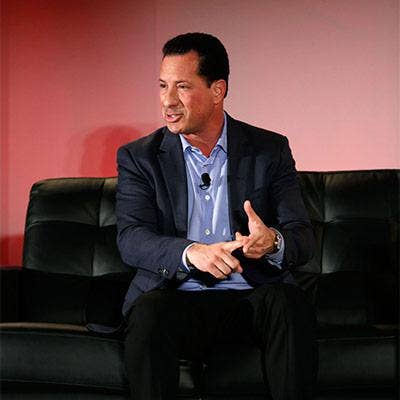
You're a risk-taker. Why are you so excited about hyperconverged infrastructure? What's really exciting about this?
I think we're very fortunate. There's a little bit of a perfect storm here ... the timing is just spectacular. I've never seen CIOs so open and receptive to change. And by the way, this merger between Dell and EMC is going to drive that further. People understand that something is coming to and end and there needs to be new beginning, and maybe we're one of those candidates. So everything is just at a high level, meeting our expectations, the plan is just coming together and the potential is so great. If you look at IT infrastructure below the hypervisor … the world consumes $107 billion of that gear every year. What we've been developing this product for six years to do, which we think is dramatically different than what anyone offers in the VDI space, is it's supposed to address all of that. and I'm excited because I think we're executing very well, and we just need to stay focused and patient and we can deliver on that.
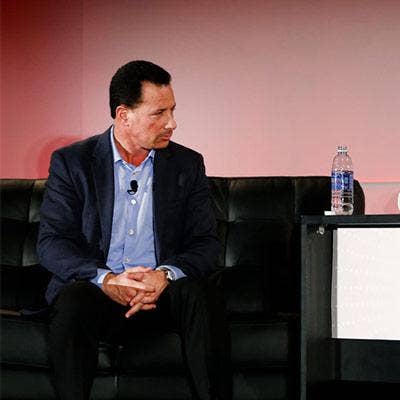
Stratoscale is another hyper-converged startup that Cisco and Intel invested in. What is the difference there?
My understanding there's developing KVM farms on Intel servers, we have not been running into them. If you're Cisco or anyone of those very large vendors and you're looking at what's going on in hyper-converged, you're asking yourself is this the next VMware? It took ten years for mighty Microsoft to develop a competing product.
Some are surprised by the fact that these large companies are putting a lot of investments into small and emerging companies and I'm not surprised that we don't see these companies in the market. It's getting a bit late. We've been developing this technology for six years. It's going to be a little late to start developing this technology a year ago or now.

What do you spend the most time doing at SimpliVity? It is sales more than technology?
There is the issue of decision making and there is the notion of operations. I do very little in terms of operating finance … engineering … other administrative issues. I have a very strong team in that regard. I participate in all the strategic decision making regarding product roadmap, partnerships, business development and everything else that we do. Where I spend a lot of my time on the operational side … is dealing with partners, either on a strategic level - for example, with our Cisco relationship or our important VARs - and selling. I spend a little time with the board, but operationally, I'm mostly go to market, which is marketing, business development and sales.

You were a member of the elite special forces in Israel, part of a that unit produced two Israeli prime ministers, including Benjamin Netanyahu. What did being in the military teach you about business?
First I want to say, listening to Bob just now,I figured the story about SimpliVity reducing the TCO by 3x is much more believable than everything you just said. It's a good story. [Laughter] Sixty-seven percent reduction in TCO. [Laughter]
The word "military" is very ambiguous, just like "sports." There's chess and there's sumo wrestling, and there are a lot of differences. I was very fortunate to be close to the people that you described. I learned a lot from them. But in general i think the applicability it has to our lives has to do with understanding people, understanding strategy and understanding innovation, because in those particular circumstances the word "impossible" is something you need to prove ... The assumption is, why can you indeed do ’x'? And then you have to prove why you claim that you can't do "x." That would be my short answer.

What do you think about the U.S.'s agreement with Iran on nuclear weapons?
I've had no time to read about it, I'm so busy with SimpliVity. [Laughter]
Do you still talk to Netanyahu?
From time to time.
What does he think about it?
I haven't spoken him about that, but let's not be confused with what people say on television and what they really think.